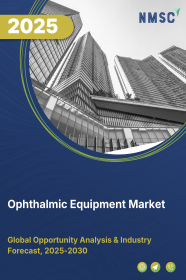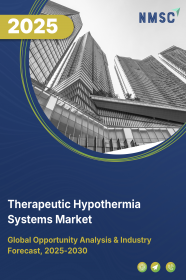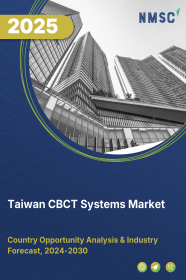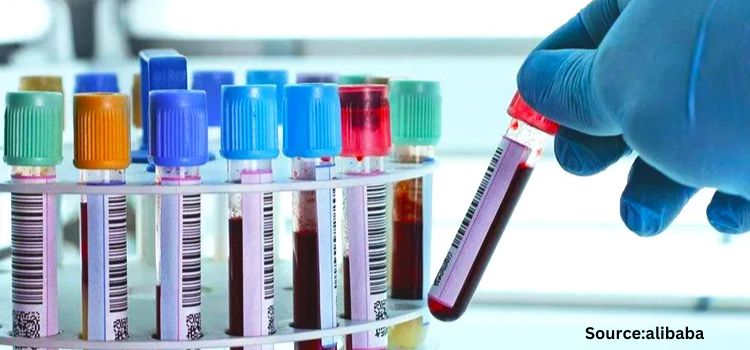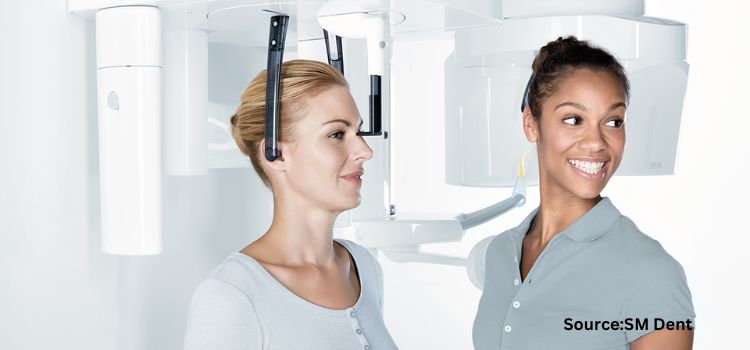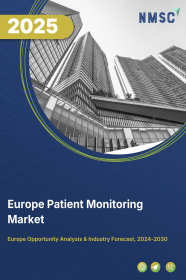
Europe Patient Monitoring Market by Product (Cardiac Monitoring Devices, Blood Glucose Monitoring Systems, Hemodynamic/Pressure Monitoring Devices, Multi-parameter Monitoring Devices, Respiratory Monitoring Devices, Temperature Monitoring Devices, Fetal & Neonatal Monitoring Devices, Neuromonitoring Devices, Weight Monitoring Devices, and Other Devices), by Type (Conventional and Wireless), and Others- Opportunity Analysis and Industry Forecast, 2024–2030
Industry: Healthcare | Publish Date: 14-Feb-2025 | No of Pages: 182 | No. of Tables: 132 | No. of Figures: 97 | Format: PDF | Report Code : HC1089
US Tariff Impact on Europe Patient Monitoring Market
Trump Tariffs Are Reshaping Global Business
Market Definition
The Europe Patient Monitoring Market size was valued at USD 12.53 billion in 2023, and is predicted to reach USD 21.21 billion by 2030, with a CAGR of 7.5% from 2024 to 2030. Patient monitoring is a crucial aspect of modern healthcare, involving the continuous or intermittent assessment of a patient's vital signs, physiological parameters, and overall health status throughout their medical treatment. This process employs a range of medical devices and technologies to collect, record, and analyze data such as blood pressure, heart rate, oxygen saturation, respiratory rate, temperature, and other vital signs.
The patient monitoring market encompasses the healthcare industry segment dedicated to developing, manufacturing, and distributing equipment and systems for consistently or periodically tracking and recording a patient's vital signs and health parameters. This market plays a critical role in various healthcare settings, from hospitals and intensive care units to outpatient clinics and home healthcare environments. By enabling the provision of appropriate care tailored to individual medical needs, patient monitoring ensures that patients receive the highest quality of care.
Government Initiatives Drives the Growth of Patient Monitoring Systems
Government initiatives in the Europe region play a crucial role in propelling the growth of the patient monitoring market. Governments, recognizing the importance of a resilient healthcare system, are channeling funds to upgrade healthcare infrastructure, encompassing hospitals and clinics. This facilitates the integration of cutting-edge technologies, including patient monitoring systems. Initiatives often encourage the adoption of modern healthcare technologies through incentives and supportive regulatory environments, fostering collaboration between the public and private sectors.
Rising Chronic Diseases Propels the Patient Monitoring Growth Over the Region
The rising incidence of chronic diseases, such as cardiovascular disorders, diabetes, and respiratory illnesses, is fueling the expansion of the patient monitoring market in Europe. Patient monitoring devices are critical for managing chronic conditions by providing real-time data on vital signs and medication adherence, enabling timely interventions and preventive measures. This growing burden of chronic diseases necessitates advanced healthcare solutions, leading to increased investment in patient monitoring technologies.
Connectivity Issues in Patient Monitoring Devices Restrain the Market Growth
One of the significant restraining factors in the patient monitoring market in Europe is the connectivity issues which pose a risk to real-time data transmission and communication between devices, impacting the timeliness and accuracy of patient information. Addressing these challenges is crucial for unlocking the full potential of patient monitoring technologies and ensuring their widespread adoption in the healthcare sector.
Introduction of AI and Machine Learning in Patient Monitoring Systems Create Ample Growth Opportunities
In Europe, Artificial Intelligence (AI) and Machine Learning (ML) are transforming the landscape of patient monitoring by enabling advanced analysis of extensive datasets. In this context, AI algorithms leverage historical patient data to identify subtle patterns and anomalies in vital signs and medical history. This capability allows for early detection of potential health issues before symptoms manifest, facilitating timely interventions.
Moreover, the integration of AI and ML supports the concept of personalized medicine, tailoring treatment plans based on individual patient characteristics and responses. These technologies contribute to risk stratification, helping healthcare providers prioritize interventions for patients at higher risk of developing specific medical conditions or complications.
Germany Holds the Dominant Market Share in Europe Patient Monitoring Market
The shifting demographic landscape marked by a steadily increasing aging population, stands as a pivotal driver propelling the Patient Monitoring Market. Conditions such as diabetes, cardiovascular diseases, and respiratory disorders are more common among the elderly, prompting a heightened demand for patient monitoring solutions. These technologies enable healthcare providers to remotely track vital signs, manage chronic illnesses, and respond promptly to emergent situations.
Ongoing technological advancements play a pivotal role in shaping the Patient Monitoring Market. The introduction of wearable devices, such as smartwatches and fitness trackers, equipped with advanced monitoring capabilities has gained prominence. These devices enable continuous tracking of vital signs, providing real-time health data to both healthcare professionals and patients. Additionally, the integration of remote monitoring systems allows for the tracking of patients' health status from a distance, enhancing accessibility to healthcare services.
U.K. to Witness Substantial Growth in the Europe Market
The surge in chronic diseases, encompassing conditions such as cardiovascular ailments, diabetes, and respiratory disorders, serves as a pivotal driver for the Patient Monitoring Market in the U.K. With an escalating need for continuous health surveillance, patient monitoring systems play a vital role in early detection, intervention, and management of chronic illnesses. These systems enable real-time tracking and analysis of essential health parameters, ensuring timely responses to abnormalities.
Government initiatives in the Europe region are crucial drivers for the growth of the patient monitoring market. Recognizing the significance of a robust healthcare system, governments allocate funds to enhance healthcare infrastructure, including hospitals and clinics, facilitating the integration of advanced technologies including patient monitoring systems. Initiatives often encourage the adoption of modern healthcare technologies through incentives and favorable regulatory environments, fostering collaboration between the public and private sectors.
Competitive Landscape
Various market players operating in the Europe patient monitoring market include Medtronic Plc, Koninklijke Philips N.V., GE Healthcare, Siemens Healthineers, Nihon Kohden Corporation, Abbott Laboratories, Masimo Corporation, Hill-Rom Holdings, Inc., Biotronik SE & Co. KG, Honeywell International, Inc., and others.
Europe Patient Monitoring Key Market Segments
By Product
-
Cardiac Monitoring Devices
-
Mobile Cardiac Telemetry Monitors
-
Electrocardiogram (ECG) Devices
-
Implantable Loop Recorders
-
Event Monitors
-
Smart/Wearable ECG Monitors
-
-
Blood Glucose Monitoring Systems
-
Self-Monitoring Blood Glucose Systems
-
Continuous Glucose Monitoring Systems
-
-
Hemodynamic/Pressure Monitoring Devices
-
Hemodynamic Monitors
-
Blood Pressure Monitors
-
Disposables
-
-
Multi-Parameter Monitoring Devices
-
Low-Acuity Monitoring Device
-
Mid-Acuity Monitoring Devices
-
High-Acuity Monitoring Devices
-
-
Respiratory Monitoring Devices
-
Pulse Oximeters
-
Spirometers
-
Capnographs
-
Peak Flow Meters
-
-
Temperature Monitoring Device
-
Handheld Temperature Monitoring Devices
-
Table-Top Temperature Monitoring Devices
-
Wearable Continuous Monitoring Devices
-
Invasive Temperature Monitoring Devices
-
Smart Temperature Monitoring Devices
-
-
Fetal & Neonatal Monitoring Devices
-
Neonatal Monitoring Devices
-
Fetal Monitoring Devices
-
-
Neuromonitoring Devices
-
Electroencephalograph (EEG) Machines
-
Electromyography Machines
-
Cerebral Oximeter
-
Intracranial Pressure (ICP) Monitors
-
Magnetoencephalography (MEG) Machines
-
Transcranial Doppler (TCD) Machines
-
-
Weight Monitoring Devices
-
Digital
-
Analog
-
-
Others Devices
By Type
-
Conventional
-
Wireless
By End User
-
Home Healthcare
-
Hospitals & Clinics
-
Others
By Region
-
Europe
-
The U.K.
-
Germany
-
France
-
Italy
-
Spain
-
Netherlands
-
Rest of Europe
-
REPORT SCOPE AND SEGMENTATION:
|
Parameters |
Details |
|
Market Size in 2023 |
USD 12.53 Billion |
|
Revenue Forecast in 2030 |
USD 21.21 Billion |
|
Revenue Growth Rate |
CAGR of 7.5% from 2024 to 2030 |
|
Analysis Period |
2023–2030 |
|
Base Year Considered |
2023 |
|
Forecast Period |
2024–2030 |
|
Market Size Estimation |
Billion (USD) |
|
Growth Factors |
Government Initiatives Drives the Growth of Patient Monitoring Systems Impact of Rising Chronic Diseases Propels the Patient Monitoring Growth over the region |
|
Countries Covered |
6 |
|
Companies Profiled |
10 |
|
Market Share |
Available for 10 companies |
|
Customization Scope |
Free customization (equivalent up to 80 working hours of analysts) after purchase. Addition or alteration to country, regional, and segment scope. |
|
Pricing and Purchase Options |
Avail customized purchase options to meet your exact research needs. |
KEY PLAYERS
-
Medtronic Plc
-
Koninklijke Philips N.V.
-
GE Healthcare
-
Siemens Healthineers
-
Nihon Kohden Corporation
-
Abbott Laboratories
-
Masimo Corporation
-
Hill-Rom Holdings, Inc.
-
Biotronik SE & Co. KG
-
Honeywell International, Inc.

















 Speak to Our Analyst
Speak to Our Analyst



